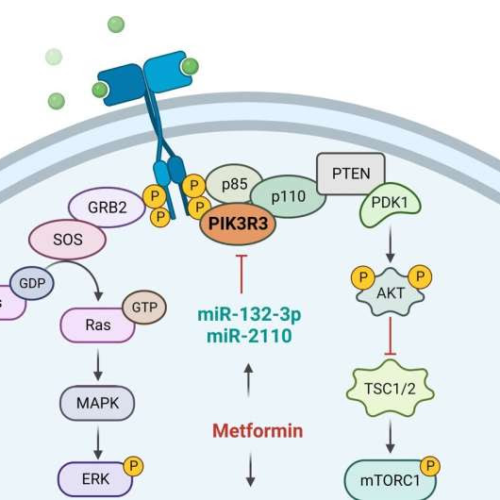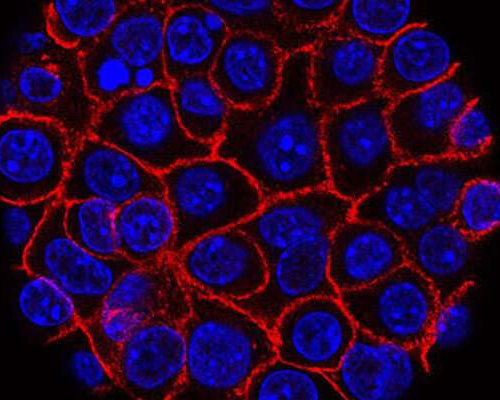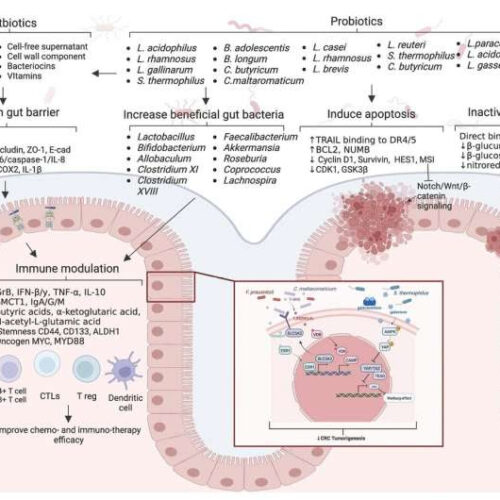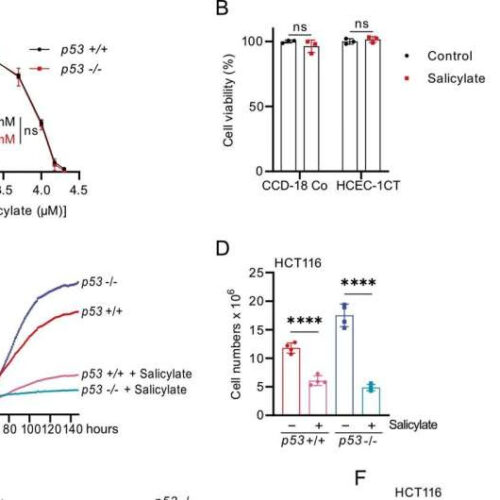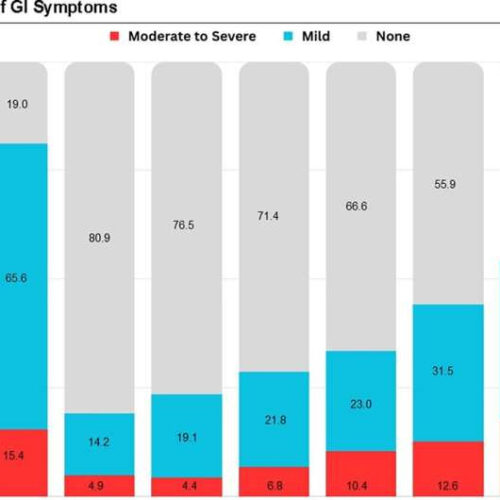by The Hospital for Sick Children Model for PIEZO mechanosensing of the ISC niche. Credit: Science (2024). DOI: 10.1126/science.adj7615 A new study from The Hospital for Sick Children (SickKids) and Institut Curie reveals how stem cells sense and respond to their environment, with implications for inflammatory bowel disease and colorectal cancer. Stem cells constantly adapt to their environment...
Tag: <span>Colorectal Cancer</span>
Colorectal cancer diagnosis found to impact lives of younger adults differently than older adults
Credit: Andrea Piacquadio from Pexels Younger adults with colon cancer tend to be diagnosed at a later stage and have more aggressive types of tumors. Additionally, young patients living with colorectal cancer have long-term, adverse consequences on their lives, which are different from the impact the disease has on older adults, according to two studies...
Study reveals metformin’s role in slowing colorectal cancer cell growth
JUNE 11, 2024 by Flinders University Credit: Cancers (2024). DOI: 10.3390/cancers16112055 Flinders University researchers have analyzed how an antidiabetic treatment could help control the growth of tumors, potentially paving the way for the design of better cancer treatments. The new study investigated what happens when metformin, a type 2 diabetes medication, is used to treat...
Vaccine targeting KRAS in pancreatic and colorectal cancer shows promise
Peer-Reviewed Publication MEMORIAL SLOAN KETTERING CANCER CENTER MEMORIAL SLOAN KETTERING CANCER CENTER MEDICAL ONCOLOGIST EILEEN O’REILLY HELPED LEAD A CLINICAL TRIAL INVESTIGATING A READY-MADE VACCINE AS A TREATMENT FOR PANCREATIC AND COLORECTAL CANCERS WITH CERTAIN KRAS MUTATIONS.CREDIT: MEMORIAL SLOAN KETTERING A new vaccine shows encouraging early results as a potential off-the-shelf treatment for certain patients...
Vaccine demonstrates potential in delaying relapse of KRAS-mutated pancreatic and colorectal cancers
by University of Texas M. D. Anderson Cancer Center Pancreatic cancer cells (blue) growing as a sphere encased in membranes (red). Credit: National Cancer InstituteA vaccine has shown potential to prevent relapse of KRAS-mutated pancreatic and colorectal cancers for patients who had previously undergone surgery, according to a Phase I trial led by researchers at The...
Review dives deep into probiotics for colorectal cancer
by Cactus Communications Many patients with colorectal cancer (CRC) suffer a poor prognosis, highlighting the need for effective prevention and treatment. In this Chinese Medical Journal review, researchers from The Chinese University of Hong Kong summarize the latest findings on non-invasive CRC prevention and treatment using probiotics. Credit: Prof. Jun Yum, The Chinese University of...
New Case Western Reserve University study finds diabetes drug may reduce risk for colorectal cancer
Peer-Reviewed Publication CASE WESTERN RESERVE UNIVERSITY NATHAN BERGER CREDIT: CASE WESTERN RESERVE UNIVERSITY CLEVELAND—A groundbreaking study by researchers at Case Western Reserve University suggests a class of medications used to treat type 2 diabetes may also reduce the risk of colorectal cancer (CRC). The findings, published today (Dec. 7) in the journal JAMA Oncology, support...
Colorectal cancer: Aspirin found to activate protective genes
by Ludwig Maximilian University of Munich Salicylate suppresses viability and proliferation of CRC cells independent of p53. A Cell viability of HCT116 cells was determined by MTT assay after treatment with indicated concentrations of salicylate for 48 h. IC50 was determined using GraphPad Prism based on changes in viability. B Cell viability of non-transformed CCD-18-Co and HCEC-1CT...
Does diabetes affect the survival of individuals with colorectal cancer?
by Wiley Credit: Pixabay/CC0 Public DomainComplications of diabetes can have numerous negative health effects, from impaired vision and nerve damage to kidney dysfunction and heart disease. In an analysis of information on adults with colorectal cancer, patients who also had diabetes—particularly those with diabetic complications—faced a higher risk of dying early. The research is published in...
GI symptoms persist in older female colorectal cancer survivors, study finds
by Emily Caldwell, The Ohio State University GI symptoms in CRC survivors (Prevalence, and severity). A. Prevalence of GI symptoms with mild (blue bar) and with moderate-to-severe symptoms (red bar). Y-axis unit % (prevalence of GI symptoms among 413 colorectal cancer survivors). B. Mean Severity of GI symptoms (Y axis unit 0 ‘none’ to 3 ‘severe’...

